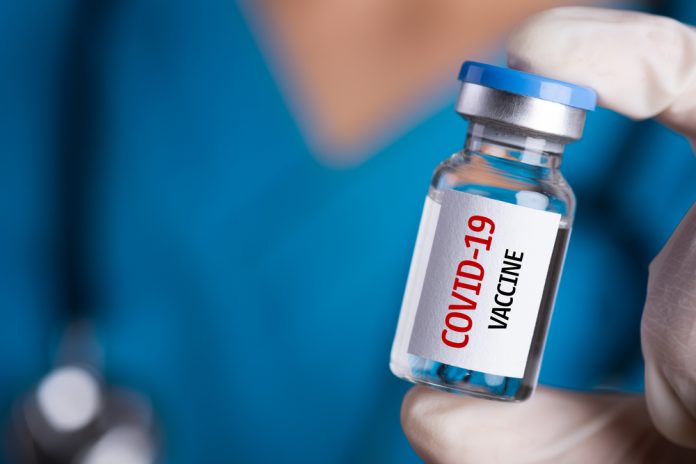The rollout of the coronavirus vaccine will be challenging and chaotic as thousands of Sunshine Coast residents seek to get the jab, but people are urged to be patient.
Two vaccines have now been approved, with the Pfizer vaccine to be distributed first, followed by the Astra-Zeneca vaccine by the end of March.
However exact dates for the Sunshine Coast rollout have not been set and local practitioners remain “in the dark”, with very little information coming from Queensland Health.
Australian Medical Association (AMA) Sunshine Coast president Dr Roger Faint said doctors were frustrated at the lack of details coming from the Queensland government but he said “I suppose that’s because it’s happening so quickly”.
“The decisions are being made day by day.”
The Queensland Government has so far indicated that Gold Coast Hospital will be the first to begin priority vaccinations on Monday, with 100 quarantine workers getting the jab.
The Gold Coast will be followed by the Princess Alexandra Hospital in Brisbane on Wednesday and Cairns on Friday.
The state’s rollout will continue until the end of October and Premier Anastacia Palaszczuk said it would be a very slow process and the pace of the rollout would depend on supply from the Federal Government.
Ms Palaszczuk said no-one should panic or turn up at hospitals and clinics yet because the first phase would be invite only for priority quarantine workers, health employees and aged care staff and residents.
“It’s something that I know everyone in Australia has been waiting for and Queenslanders are waiting for but once again, it’ll start of very slowly, so no one needs to panic or to turn up anywhere,” she said.
“We will be inviting people to come to specific centres when we get more supply.”
Health workers will get their Pfizer jab at Sunshine Coast University Hospital.
Aged care workers and residents who choose to get the vaccine will receive it at their residential aged care facility by a trained clinical workforce.
Dr Faint said once the priority phase was over, the rollout to the general population with the AstraZeneca vaccine would occur at doctors’ clinics and some pharmacies.
He said if the process was anything like the annual flu jab, there would be “a certain amount of chaos” at clinics trying to cater to influxes of patients and controlled supplies of the drug.
“We do know the flu vaccine once a year is really busy with a big rush of people wanting to get the flu vaccine and people getting upset because we run out of vaccine and they have to wait until the next lot,” Dr Faint explained.
“I imagine that will happen with (the coronavirus vaccine). I can see there will be challenges.”
Older Australians to get AstraZeneca
Aged Care Services Minister Richard Colbeck says not all older Australians living outside nursing homes will receive the Pfizer coronavirus vaccine.
A combination of the Pfizer and AstraZeneca vaccines will be used on Australians aged over 70 who don’t live in residential aged care.
Australia has access to enough Pfizer doses for 10 million people, with aged care and disability residents among the first to receive that jab.
Some people aged over 70 who aren’t in care will receive the AstraZeneca jab, which has a slightly lower efficacy rate.
Aged Care Services Minister Richard Colbeck confirmed both vaccines will be used for older Australians.
“Most people in Australia will get the AstraZeneca vaccine because we have more doses,” he told ABC radio on Wednesday.
Australia has a deal for almost 54 million injections of the two-dose AstraZeneca vaccine.
Therapeutic Goods Administration boss John Skerritt says the regulator’s advice to administer the drug on a case-by-case basis for people 65 and over is about futility, not safety or efficacy concerns.
“If someone only has a few weeks to live, you don’t give them a hip replacement and you may not give them a vaccine or medicine,” he said.
“So that’s where we’re hinting at, but the vaccine is recommended for use in all ages.”
Senator Colbeck said availability and location would also determine who gets what vaccine, with Pfizer to be stored in specialised hubs at ultra-cold temperatures.
“Both vaccines are safe and they work. That’s the important thing for us.”
While aged care workers will be immunised during the first phase, the government is refusing to make coronavirus vaccines compulsory like the flu shot.
Senator Colbeck signalled that could change if evidence from the UK and other countries showed vaccinations stopped transmission of the virus.
“The question of compulsory vaccination for aged care workers remains an open question,” he said.
“We will continue to look at the evidence as it comes in. We have the advantage of seeing what’s happening in other countries, particularly in the UK with the AstraZeneca vaccine.”
He said residents were being prioritised because they were the most at risk.
A new health department survey found 64 per cent of Australians would definitely get the jab, while 27 per cent were unsure and nine per cent said they would not get it.
The top three motivating factors were self-protection, keeping Australia safe and protecting elderly and vulnerable people.
Among the barriers for those who are concerned were long-term side effects, quick vaccine development and potential allergic reactions.
Victoria recorded no new cases of coronavirus on Wednesday, fuelling expectation the state’s snap five-day lockdown will end at midnight.





